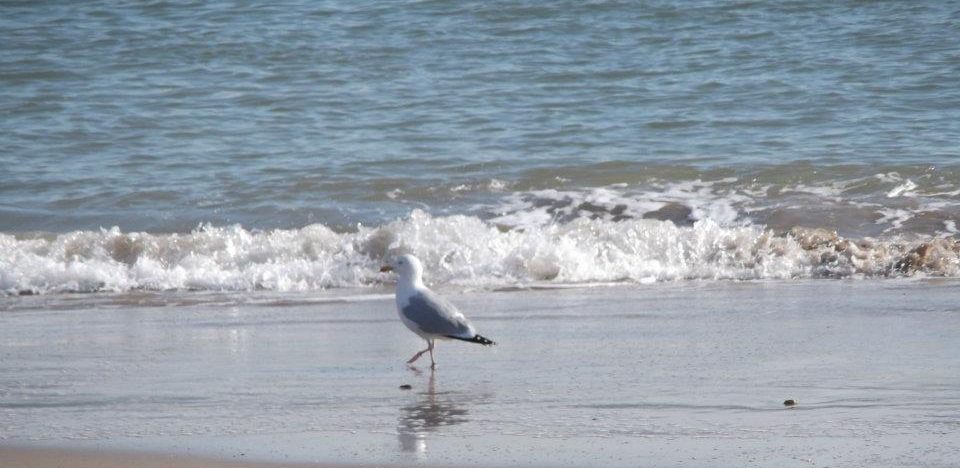- HMRC receives Airbnb letting data – Article published in accountingWEB dated 2nd October 2020 posted October 2020
Landlords should realise that HMRC will know about their lettings through Airbnb, so full disclosure of all their taxable property income is essential, including for all prior years.
The Airbnb UK accounts for the year to 31 December 2019 include a statement that the company will share data with HMRC about the earnings of hosts (those who let out property) on its UK platform in the years 2017/18 and 2018/19, Reuters reported.
This should not come as a surprise to tax advisers, as HMRC has been using its Connect data analysis system for years to scrape data concerning property income and gains from various sources. However, it is a jolt to see the relationship between the online platform and HMRC stated so bluntly.
Opening enquiries
The Airbnb data will allow HMRC to launch targeted enquiries into the tax affairs of individuals who have not declared their lettings income for 2017/18 and 2018/19. The deadline for opening an enquiry into a self-assessment return for 2018/19 is 31 January 2021, if the return was issued and submitted on time.
However, the discovery rules allow HMRC to go back much further, up to 20 years in some cases. The data provided by Airbnb will certainly constitute a discovery for HMRC’s purposes, so up to 20 years will be open for enquiry.
HMRC is reported as saying it will address any issues over the landlords’ payment of tax in 2021/22. This clearly indicates that HMRC expects to use its discovery powers to open up tax enquiries going back some years.
Guidance
All online platforms providers in the gig economy have come under pressure from tax authorities round the world to ensure that their customers pay tax on their earnings.
To help nudge their hosts in the right direction Airbnb provides a short note written by PwC on tax considerations for short term lettings on its website. This was last updated in January 2019, so it could do with a refurbishment.
The guidance note does not advise landlords how to declare income from property in past tax years, or what to do in the case of a tax enquiry, neither does it mention capital gains tax.
An earlier 49-page guidance note produced for Airbnb by EY in 2018 is far more comprehensive as it includes sections on income as well as gains, and a very useful chapter on how to complete a self-assessment tax return. There is also a short list of points taxpayers may make get wrong, such as not registering for self-assessment when they need to.
What to declare
The Airbnb insight report for 2017/18 says the annual earnings from Airbnb by a typical UK host is £3,100, (£3,800 in Scotland). This lies within the room-a-room relief allowance of £7,500, so would not generate a tax reporting obligation for a host who only lets out part of their main home.
However, letting a second or third home that generates income in excess of £1,000 in a tax year will create a tax reporting obligation. The £1,000 limit is the trading and miscellaneous income annual allowance that can apply to letting income that does not fall within rent-a-room relief.
How to declare
If the landlord has not declared their rental income, and it is not covered by rent-a-room relief or the miscellaneous trading income allowance, this situation should be swiftly corrected.
Where the taxpayer has submitted a tax return, and it is still in date for amendment, it should be amended without delay. The 2018/19 tax return can be amended by the taxpayer until 31 January 2021.
Where the omitted property income or gain relates to earlier tax years the taxpayer should consider disclosing under HMRC’s let property campaign.
This disclosure service has been running for over seven years, but it is only open to individuals who let UK residential property. It cannot be used to declare income from non-residential property or where the property has been let through a company or trust. Where the let property is located overseas the worldwide disclosure facility should be used.
The advantage in using the let property campaign to disclose is that the penalties charged for non-disclosure will be much lower than if the taxpayer waits for HMRC to contact them. If full disclosure and payment of the tax is made before HMRC spots there is a problem, the penalty can be reduced to nil.
Airbnb’s tax
The Airbnb UK accounts also show that the company has settled a tax dispute of its own with HMRC, paying an additional £1.8m in tax. It is not clear what years this extra tax relates to, but its declared corporation tax liability for 2019 was £1.1m compared to £146,000 declared in the 2018 accounts.
2. Chancellor’s announcements in relation to financial assistance during Covid-19 – posted April 2020
Regarding the Chancellor’s recent announcements for financial support given the Covid-19 emergency:
- 80% of salaries paid
This is only for “furloughed” workers. This is a worker who would have been made redundant if this assistance had not been introduced.
- Up to £2500 for the self-employed
HMRC will look at the last 3 years Net Profits. These are 2016/2017, 2017/2018 and 2018/2019
If the average is above £50,000 you won’t get any assistance.
To get assistance, your self-employment income must be at least 50% of your total earnings.
If HMRC think you are eligible, they will contact you and send you an invitation to apply. You must answer their questions and apply. We cannot do that for you, although we will be available to assist you if necessary.
Be aware of Scam emails purporting to be HMRC asking for bank details or personal details.
Contact us if you have any questions.
3. IR35 posted March 2020
The new legislation proposed for 6th April 2020 has now been delayed a year. We intend to remain engaged in the discussions to repeal the proposal. We have been advised that our House of Lords Finance Sub-Committee submission on IR35 will be published. It is attached below if you wish to read it.
IR35 is still making headlines, especially with the changes relating to off-payroll workers being legislated to commence from 6th April 2020 . The reforms will force medium and large businesses in the UK to set the tax status of their contractors and freelancers. Previously this was set by the contractors themselves. This means that in many instances, self-employed workers will only be engaged if they are taxed through the clients payroll.
In February 2020, the House of Lords Finance Sub-Committee initiated a review of the IR35 legislation and called for written evidence to be submitted for their review. As we had concerns around how IR35 would impact our clients, Wareham & Associates responded to the House of Lords. We have since been advised by the House of Lords that our submission will be published with their findings. You can read our submission here.
What you need to be aware of is that once you are on the payroll, expenses can no longer be claimed in the same way that you may have claimed them in the past. Be aware that some companies are passing on payroll operating costs and Employer’s National Insurance contribution to the contractor and the umbrellas are passing those costs as well as recruitment cost to the contractor. The benefits of being on a payroll should be (although this is yet to be seen) holiday pay, sick pay, pension, no need for Professional Indemnity Insurance and others depending upon your contract.
We advise that you do read the contract and complete the math on what you will be paid to ensure no surprises later on. Contact us if you feel we can assist.

